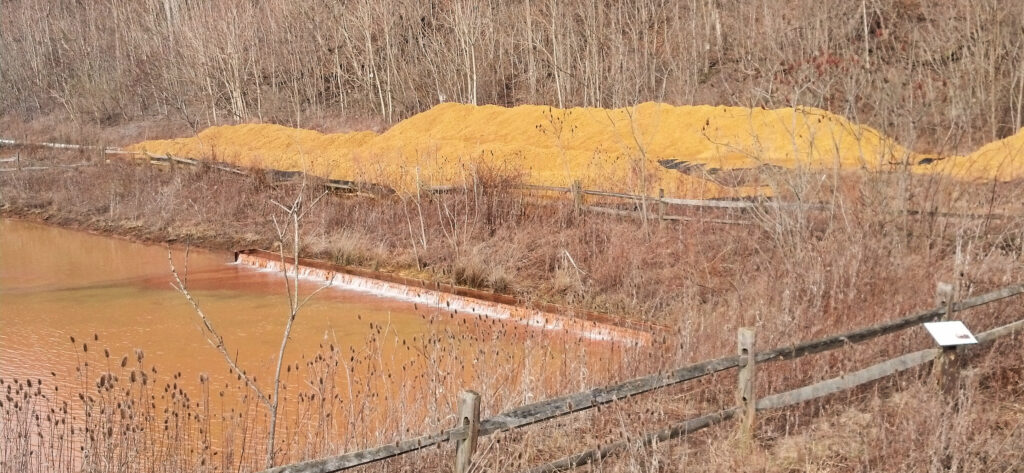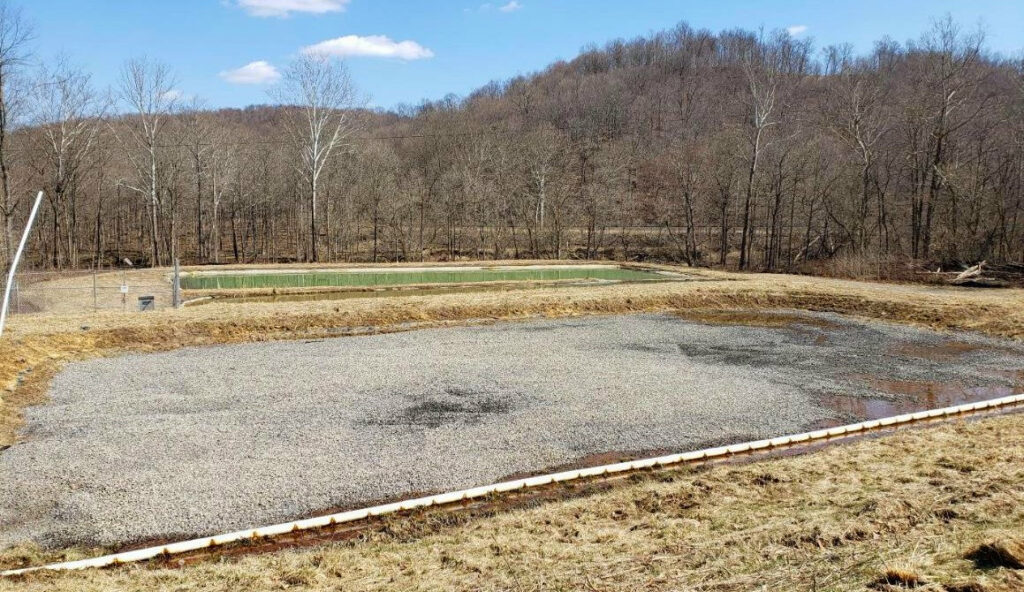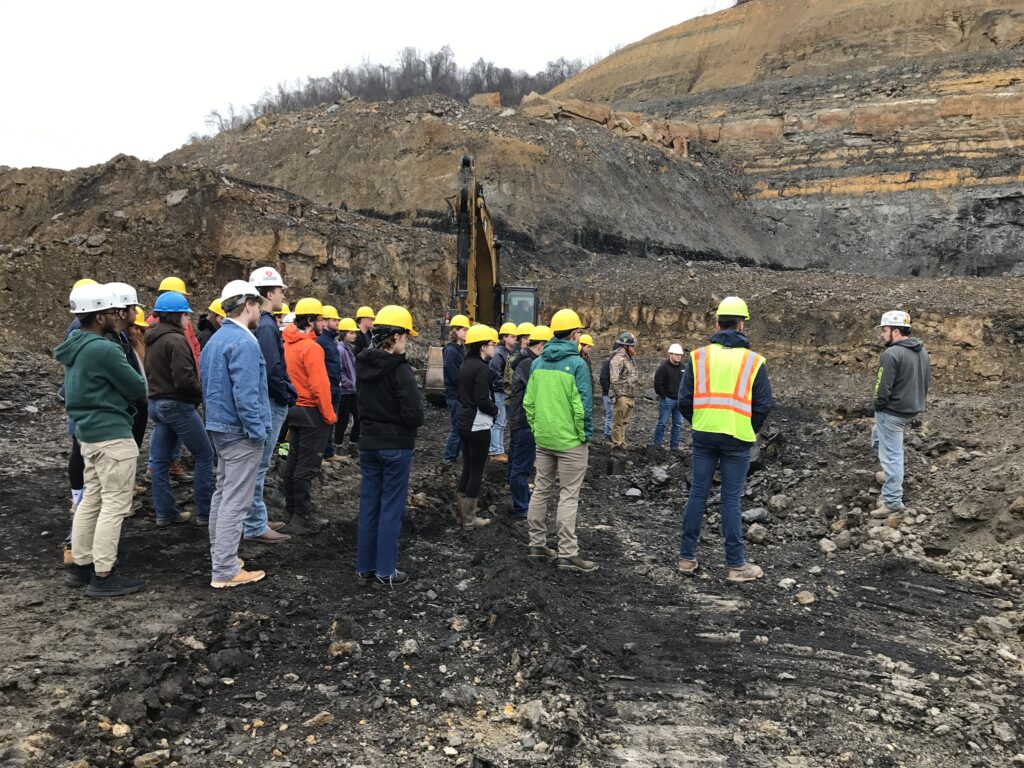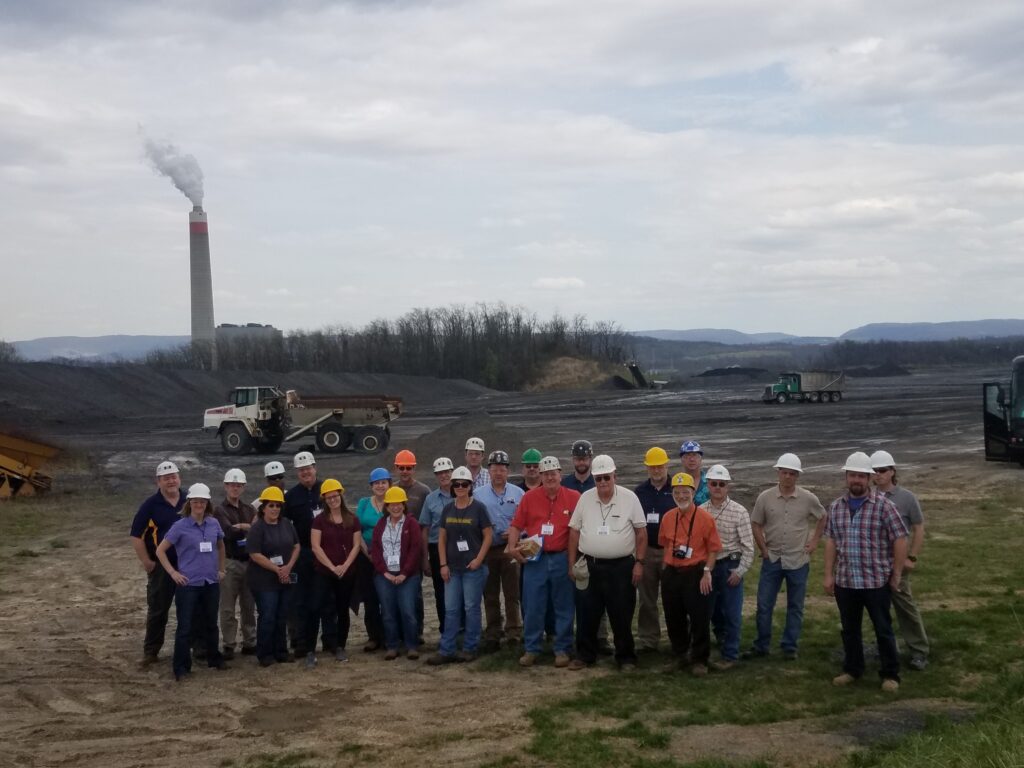Mid-Congress Field Trips
Field trips 1 to 5 are ½ day and cost $US 65 to 85 per person and trip. They will be offered twice during the conference on Wednesday. Participants can sign up for two trips on the field trip day. Field trip 6 is one day and costs $US 125 per person.
Field Trip 1 – Jeff Skousen | $US 65
Humphrey Mine and Mylan Park
Humphrey Mine is a 40-ha active limestone and coal mine producing coal from three seams and a slurry pond. Visitors can see the complex geology of the high wall and the unique machinery used in the mine. Mylan Park is a 50-ha industrial and leisure development on reclaimed mine land, demonstrating the possibilities of using mined land for economic development.
Field Trip 2 – Dave McCoy and Paul Ziemkiewicz | $US 65
Active Treatment Systems
The Muddy Creek treatment plant demonstrates the watershed approach to mine water treatment. Built in 2018, the plant is responsible for restoring 30 km of streams to a fishery. The Richard Mine has polluted Deckers Creek for more than a century and the new treatment plant will restore the lower 10 km of the creek. Some of the sludge will be collected to extract rare earth elements.
Field Trip 3 – Tim Danehy | $US 65
Passive Treatment of Acidic Mine Drainage (half day, West Virginia)
Several passive systems treating highly acidic mine drainage with elevated aluminum and iron will be visited. One site utilizes low-pH iron removal with a terraced iron formation. This is preceding a multi-stage acid neutralization system where a limestone pond is flushed into a settling pond followed by a mixed media vertical flow pond and wetland. A second stop will include a newly expanded system for a severely degraded discharge (>400 mg/L CaCO3 acidity). It uses solar-powered valves to flush two limestone ponds in series with settling ponds followed by a mixed media vertical flow pond and wetland.
Field Trip 4 – Randy Maggard and Scott Gibson | $US 65
Longview Power Plant
The 700 MW coal-fired power plant was constructed in 2007 at a cost of US$2 billion. It uses a supercritical pulverised coal-fired boiler, a high-efficiency turbine generator and advanced integrated pollution control systems, including particulate removal by filters, flue-gas desulfurization to remove sulfur dioxide, and catalytic reduction to remove nitrogen oxides and reduce carbon dioxide. Visitors will observe the fuel supply system from nearby coal mines in northern West Virginia and southwest Pennsylvania, tour the plant and see the residue.
Field Trip 5 – Bob Kleinmann | $US 85
Laurel Caverns
The guided tour takes 45 minutes and takes you through the easiest passages of the caves. There are no steps and this part of the cave is a maze with about 1,200 ft (400 m) of colourfully lit passages. The geology and history are explained by the guide and there is a sound and light show. You can then take the self-guided tour, which takes a further 1 hour and includes a 1,800 ft (600 m) walk through the largest, longest and steepest passages in the lighted part of the caves. There are about 100 steps and it is strenuous for those with knee, heart, back or shortness of breath problems. This part takes you down 17 floors in height.


Field Trip 6 – Bob Hedin | $US 125
Passive Treatment (full day, Pennsylvania)
The full-day field trip will visit two treatment systems in Pennsylvania that demonstrate passive Mn and Fe removal and resource recovery. The Greene system was installed in 2015 to treat 100 gpm (23 m³/h) of acidic water containing 45 mg/L Fe, 3 mg/L Al, and 31 mg/L Mn. The system consists of aerobic ponds that remove most of the Fe, followed by four drainable oxic limestone beds that raise the pH and remove Mn. The site has an effluent permit that limits Mn to 2.0 mg/L (monthly average). The final effluent from the system averaged < 1 mg/L Mn. The tour will focus on the drainable limestone beds. Routine and major maintenance requirements of the system will be discussed. A flushing event will be observed. The second stop is the Lowber system, which was installed in 2006 to treat 1850 gpm (420 m³/h) of alkaline water containing 50–80 mg/L Fe. The system consists of six ponds followed by a constructed wetland and the final effluent averages 1 mg/L Fe. The system collects approximately 1 t/d of iron oxide solids, which requires regular maintenance. Infrastructure has been installed to facilitate sludge pumping and placement of large geotubes for iron oxide recovery. The tour will include a walk through the processing system, stacked iron oxide and three recently filled geotubes. The sale of iron oxide as a pigment will be discussed.
Post Congress Field Trip
Details about this field trip from Morgantown to Pittsburgh guided by Brent Means can be found here. Cost is $US 875 per person.




